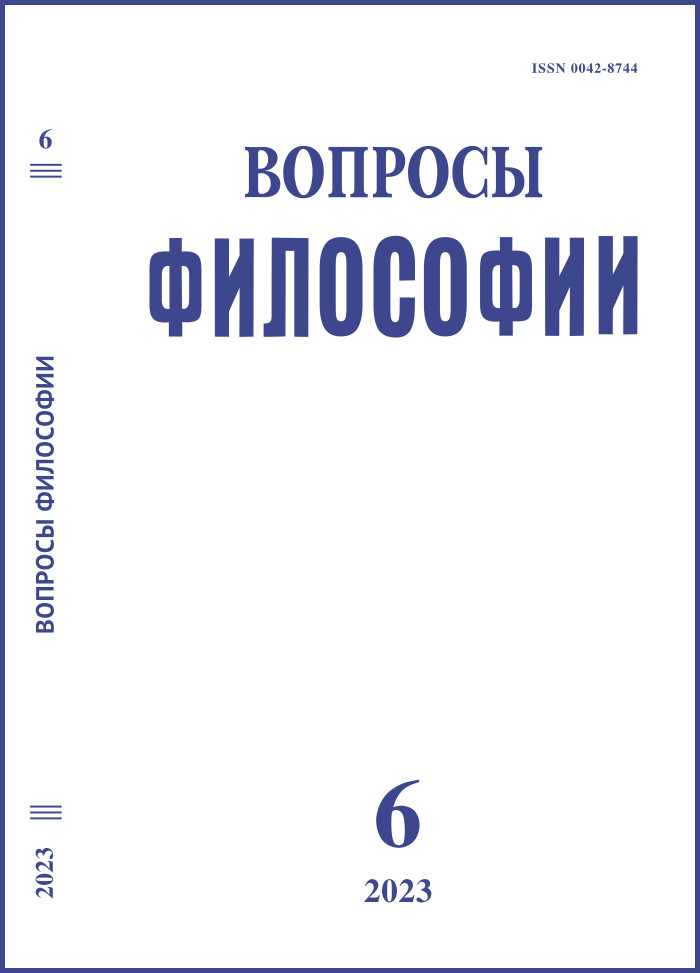From Russian Marburg to the United States: New Wine into Old Wineskins
DOI:
https://doi.org/10.21146/0042-8744-2023-6-28-38Keywords:
Russian Neo-Kantianism, Simon Kaplan, Jacob Klein, philosophical reception, “Great Books”, emigration, intellectual biography.Abstract
The conceptualization of ideological influences in philosophy is usually unidirectional: from tradition-source to tradition-recipient. The history of Russian neo-Kantianism demonstrates other possibilities for conceptualizing philosophical reception: documenting the facts of reverse influence forces us to look for new ways of interpreting this philosophical movement. The uniqueness of the historical situation, which cannot be ignored when analyzing the fate of Russian Neo-Kantianism, makes it necessary for the historian of ideas to turn to the study of intellectual biographies, professional connections, and in general the “sphere of conversation” in which the transformation of the ideological horizon took place. The emigration of intellectuals from Russia in the late 1910s and early 1920s, termed the “philosophers’ ships”, not only provoked unprecedented existential shifts in individual personal trajectories, but also gave rise to new intellectual phenomena, conceptual networks and cultural-institutional clusters. Reconstructing the intellectual biographies of two Russian thinkers, Simon Kaplan and Jacob Klein, whose philosophical development took place in the symbolic Marburg, we uncover difficult problems of self-identity, intellectual relevance, and creative fulfillment in emigration. Kaplan, fascinated by the philosophy of religion of Hermann Cohen, head of the Marburg School of Neo-Kantianism, found himself in demand in the United States in the innovative “Great Books” educational program as an expert on Kant and the Bible and as the translator of Cohen’s major work on the philosophy of religion into English. Klein brought to the New World a reputation as an expert in the history of ancient mathematics and Renaissance science, revealed himself as an expert in Plato’s philosophy and an excellent organizer of the educational process, and contemporary research interest turns to him as a phenomenologist.

